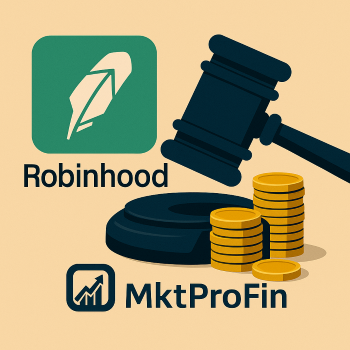Another day, another Robinhood penalty. Robinhood Financial and Robinhood Securities were recently ordered by FINRA to pay $26 million in fines and $3.75 million in restitution. The fees? Weak anti-money laundering systems, inadequate supervisory supervision, and false statements regarding their alleged "collaring" of customer market orders comprise this best hits compilation of compliance errors.
The irony is obvious for a business that based its reputation on "democratizing finance." Retail investors believed that trading would be free and easy. They ended up with a broker who was unable to handle the fundamentals, such as being honest about how their orders were processed.
Nor is this a one-time swat on the wrist. Robinhood has been the target of regulators for many years. The trend is evident, ranging from outages to deceiving clients about margin to current AML and disclosure failures: when compliance is neglected, the bill eventually becomes due. And that is almost $30 million this time.
What does this mean for investors, brokers, and issuers? Not even the most dazzling fintech brand can evade oversight. AML responsibilities are mandatory. Information disclosed is not "marketing copy." Additionally, regulators will discover that your controls are merely for show and will make you pay.
Call this the poster child of compliance complacency. Robinhood proves that weak systems don’t just hurt customers; they cost real money. The next time someone pitches you a “disruptor” with a cult following, remember: FINRA isn’t impressed by branding.
Robinhood fine, FINRA penalty, anti-money laundering, broker supervision, securities regulation, compliance failure, investor protection


